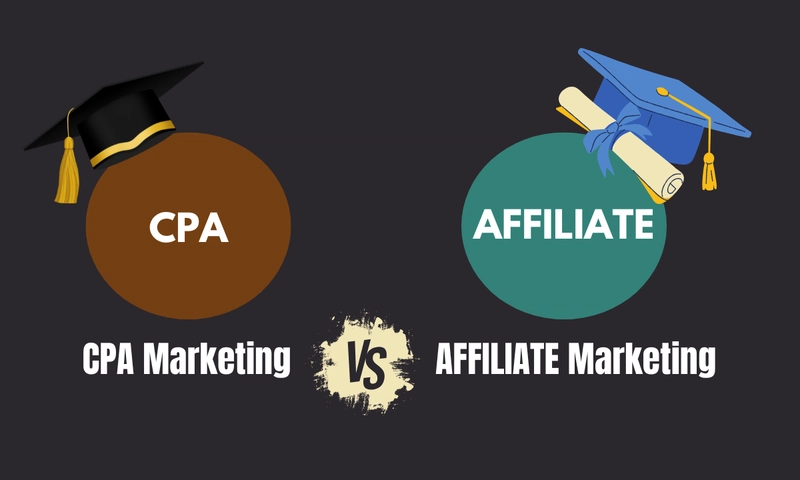
Below are some of the most frequent and searching questions online on CPA Marketing vs. Affiliate Marketing. The two have established themselves as mainstays for companies striving to broaden their online exposure and grow profits. But they are far different in terms of execution, objectives, and profit. In this article, we explore both types of marketing, and their key differences, and help marketers, advertisers, and entrepreneurs make an informed decision.
>>> LEARN MORE <<<
What is CPA Marketing?
CPA marketing, or Cost-per-action marketing, is a performance-based marketing model in which advertisers pay affiliates for specific actions or conversions that users take. These actions could include:
Signing up for a newsletter
Filling out a form
Downloading an app
Making a purchase
In CPA marketing, the affiliate is paid only when a specific action is taken. This means it is a low-risk strategy for advertisers where they only pay for results;
CPA Marketing vs Affiliate Marketing: CPA Marketing pros and cons
Advantages of CPA Marketing:
Advertiser returns are guaranteed by paying only for completed actions; and low-risk investments.
Higher Conversion Rate: More action-oriented which is usually easier to accomplish than making a sale.
Broad Range of Actions: Advertisers can target actions that cohere with their goals like downloading apps or generating leads
Scalability: Having clearly defined metrics, allows campaigns to be scaled based on their performance.
CPA marketing disadvantages
Setup Problems: What you need to measure and describe what to do.
High Competition: An attractive option for affiliates, resulting in competitive payouts.
Compliance Concerns: In the pursuit of driving actions, affiliates could potentially resort to dubious methods, putting the advertiser’s reputation on the line.
What is Affiliate Marketing?
Affiliate marketing is an umbrella term for this performance-based marketing strategy, in which an affiliate earns a commission based on sales or traffic sent to the advertiser’s website. Affiliates promote products or services through various channels, including, but not limited to, blogs, social media, and email marketing.
The Essentials of Affiliate Marketing:
Advertisers — businesses or individuals who provide goods or services.
Affiliates: They are also known as individuals or entities who promote the products/services.
Customers: They are the end users of the products/services.
Networks: Mediation between Advertisers and the Affiliates, where they provide tracking and payment.
Affiliate Marketing pros and cons
Benefits of Affiliate Marketing:
Reach: Affiliates utilize various platforms to promote a brand.
Flexibility: Affiliates can promote the products/services that are a good fit for their audience.
Low Initial Cost of Entry: Affiliates can get started for little money, by simply creating content.
Recurring income: Affiliates gain residual income from consistent commissions.
disadvantage of Affiliate Marketing:
Slow Payments: Affiliates may wait weeks or months to get their commissions.
Traffic Dependency: Traffic generation is the key to success.
Oversaturation: Popular niches can have a lot of competition.
Advantages: Fraud Risks — Advertisers are at risk with things like bogus sales, phantom traffic, etc.
>>> VISIT THE OFFICIAL WEBSITE <<<






Top comments (0)